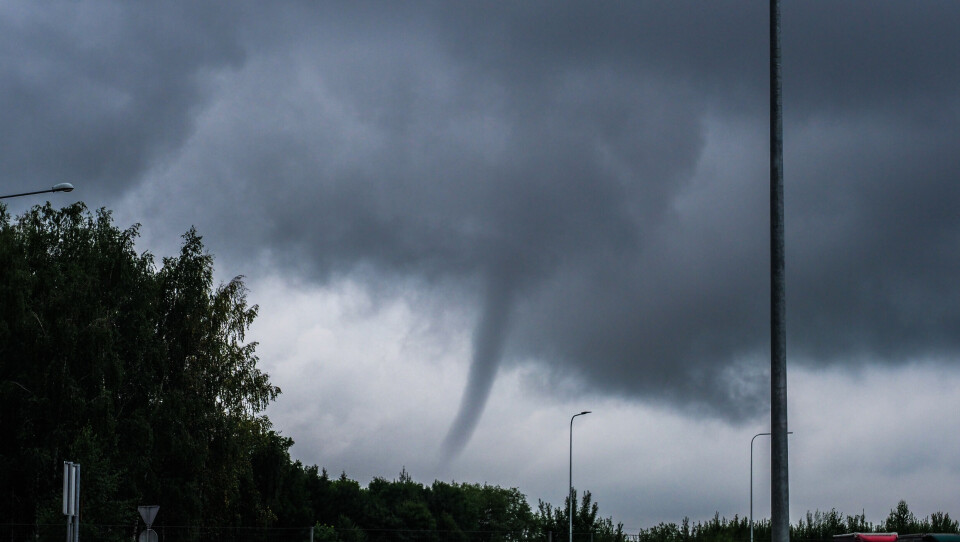-
Britons are the largest foreign community of second-home owners in Nouvelle Aquitaine
See which other departments in the region are popular with British nationals
-
Travellers risk extra costs under new Eurotunnel ticket rule
Some fare options are less flexible and less forgiving of lateness
-
May will be difficult month for train travel in France, warns minister
Two major train unions are threatening to strike and are ‘not willing to negotiate’, he says
Pas-de-Calais tornado: Why is it not an official ‘natural disaster’?
A catastrophe naturelle has not been declared despite winds of 220-270km/h, raising questions over insurance payouts for the damage caused. Several homes were destroyed

A tornado that ripped through Pas-de-Calais in northern France in October is not being declared an official ‘catastrophe naturelle’, despite devastating two villages, the local prefecture has said.
Read more: Dozens of homes destroyed as mini tornadoes hit north France villages
The Pas-de-Calais prefecture judged that the event on October 23 was similar to a simple storm, with “very violent wind caused by tornadoes”, but did not cause other weather events (such as mudslides) that would usually merit the ‘catastrophe’ status.
It said that it was a “climate event” that was already covered in most buildings insurance contracts.
A ‘catastrophe naturelle’ (natural disaster) is an official status, decided by authorities in France. Its declaration requires insurance firms to pay out under the relevant extra clause, due to damage caused by unusual or severe weather events not covered under other clauses.
30 homes rendered ‘uninhabitable’
Two villages, Bihucourt and Hendecourt-lez-Cagnicourt, were particularly affected by the tornado on October 23.
A week after it hit, authorities said that 233 homes were damaged, of which 30 were rendered “uninhabitable”, due to “significant repair work needed over a long time”. In its statement, the prefecture said: “As a result, 27 families will not be able to live in their homes for several months.”
Witnesses reported that a tornado ripped through the area and destroyed properties “in seconds”. In a local bulletin, the mayor of Hendecourt, Denis Sénéchal, said that the “100-metre-wide tornado came through the village, and left significant damage in its wake”.
The village’s power and water supplies were also cut off for 24 hours after the incident. No-one was hurt.
At the time, Interior Minister Gérald Darmanin visited the villages and said that “the state would play its role in supporting those affected”.
No effect on insurance claims?
Yet, the incident will not be considered a ‘catastrophe naturelle’, the prefecture confirmed. It said that this will not affect families’ ability to claim on insurance for damage.
Read also: French town bit by severe hailstorms in June still in damaged disarray
It said: “The 'storm, snow and hail' guarantee is included in insurance contracts. Victims will not be better compensated if a ‘catastrophe naturelle’ order is issued.
“On the contrary, victims can report damage to their insurable property to their insurance company without the need for state intervention, unlike the procedure for recognising the state of ‘catastrophe naturelle’.”
It cited the example of a tornado in Nord, in 2008, which damaged the town of Hautmont. Then, wind speeds reached between 270-320 kp/h, and a ‘catastrophe naturelle’ was declared.
However, the prefecture said: “At the time, the state recognised a ‘catastrophe naturelle’, but for mudslides and ground movement, which are not covered by insurance contracts.”
Read more: France’s ‘catastrophe naturelle’ insurance system: how to claim
What does the insurance code say?
But while the prefecture is clear that the non-declaration will not affect residents’ claims, the insurance code may suggest otherwise. This is due to the very high wind speeds recorded during the tornado.
Article 122-7 of the insurance code states that insurance cover stops “if the maximum surface winds recorded or estimated in the disaster area have reached or exceeded 145 km/h on average over ten minutes or 215 km/h in gusts".
A field investigation found that in the villages affected in October, the maximum wind speed was estimated to be between 220 and 270km/h.
Experts can measure wind speed in a few ways, said one anonymous expert to 20 Minutes. “For example, if the wind has lifted a manhole cover,” they said, “we can calculate the distance travelled in relation to the weight of the cover. In this way, we can determine how much force it took to move it.”
Strongest tornado in France since 2013
The tornado appears to be the strongest weather event of its kind recorded in mainland France since 2013, when an even more powerful tornado hit Etrochey in Bourgogne. It is also the longest-ever observed, said storm observation specialist Keraunos.
Its trajectory shows that it travelled 85km, from Bihucourt to Leuze-en-Hainaut, near Tournai, in Belgium. However, it became weaker as it continued.
Related articles
France recognises catastrophe naturelle across 163 communes nationwide
June flooding and mudslides recognised as natural disasters in France
























